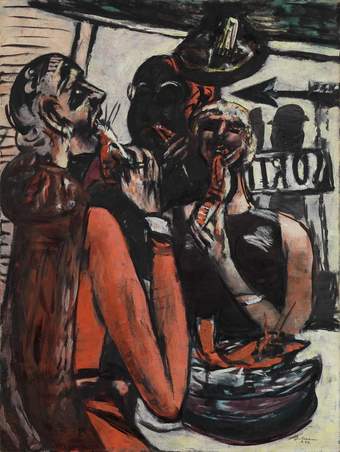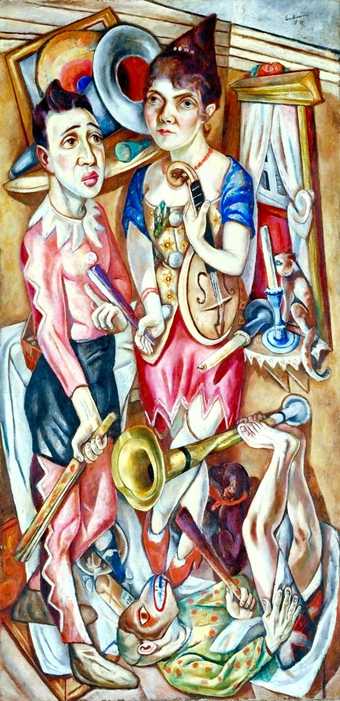In Tate Modern
Media Networks
FreeIn Tate Britain
Library and Archive Reading Rooms
View by AppointmentBiography
Max Carl Friedrich Beckmann (February 12, 1884 – December 27, 1950) was a German painter, draftsman, printmaker, sculptor, and writer. Although he is classified as an Expressionist artist, he rejected both the term and the movement. In the 1920s, he was associated with the New Objectivity (Neue Sachlichkeit), an outgrowth of Expressionism that opposed its introverted emotionalism. Even when dealing with light subject matter like circus performers, Beckmann often had an undercurrent of moodiness or unease in his works. By the 1930s, his work became more explicit in its horrifying imagery and distorted forms with combination of brutal realism and social criticism, coinciding with the rise of nazism in Germany.
This biography is from Wikipedia under an Attribution-ShareAlike Creative Commons License. Spotted a problem? Let us know.
Read full Wikipedia entryArtist as subject
-
Max Beckmann Carnival
1920
Sketches, letters, etc.
-
Max Beckmann, recipient: Mathilde Beckmann Illustrated letter from Max Beckmann to Marie-Louise and Mathilde Beckmann (née von Kaulbach)
January 1925 -
Max Beckmann, recipient: Marie-Louise Von Motesiczky Letter from Max Beckmann
[1927–8] -
Max Beckmann, recipient: Marie-Louise Von Motesiczky Letter from Max Beckmann, Paris
15 November 1929 -
Max Beckmann, recipient: Marie-Louise Von Motesiczky Letter from Max Beckmann, Amsterdam
16 April 1946



